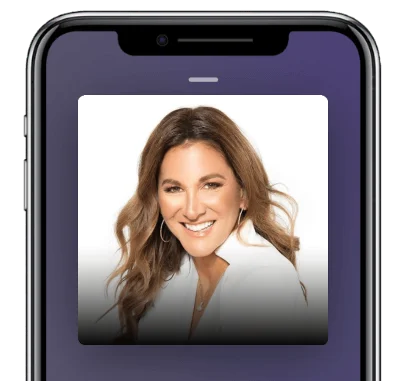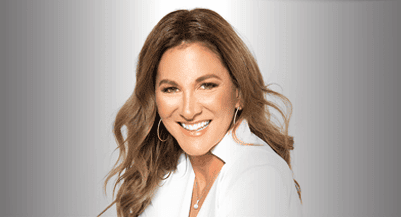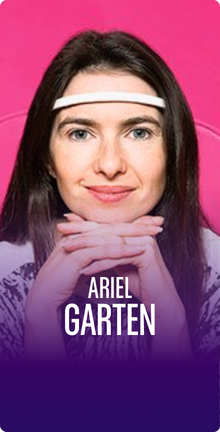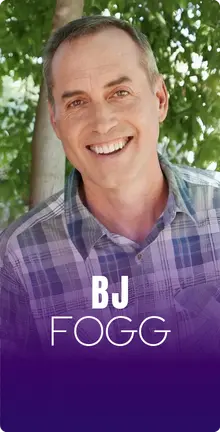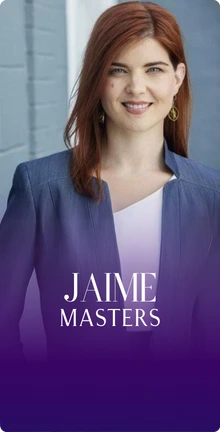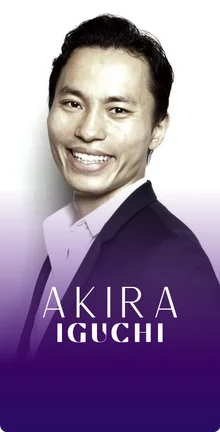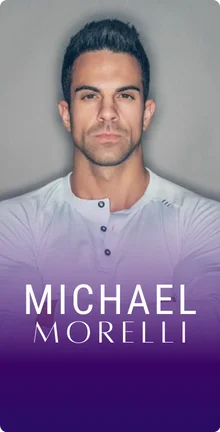In this Episode
- [00:30]Stephan introduces Allison Maslan, the Wall Street Journal best-selling author of Scale or Fail—endorsed by Daymon John and Barbara Corcoran. She has built ten companies since she was 19 and is the founder of Pinnacle Global Network, helping CEOs fast-track their success.
- [05:54]Stephan and Allison discuss why you should build a self-managing business, separate from yourself.
- [11:02]Allison shares that Pinnacle Global Network is the culmination of all the work she’s done for the past 37 years.
- [15:11]Allison walks through the SCALEit Method and shares how it’s different from systems like the Entrepreneurial Operating System.
- [23:18]Examples of companies with significant turnarounds from bankruptcy and challenges using the SCALEit Method.
- [28:06]Allison shares her motivation in creating the SCALEit Method.
- [33:06]Examples of miracles received by Pinnacle’s clients after focusing on the positive and intentionality.
- [38:22]Stephan discusses the concept of manifestation or co-creation.
- [43:01]Allison shares how she and her team managed through the beginning of the COVID-19 Pandemic.
- [47:49]Allison shares her morning meditation.
- [52:11]Stephan shares about the Ho’oponopono and how it can do anything.
- [53:10]Visit Allison’s website to explore her mastermind and private mentoring and get updated about the upcoming events. Email her directly for more questions and clarifications on her services.
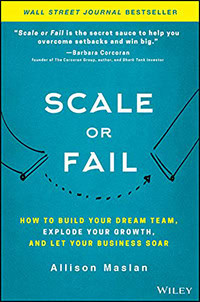
Allison, it’s so great to have you on the show.
So good to be here Stephan, thank you for having me.
I’m curious to hear your origin story. How did you start at age 19 with your first business?
I grew up in a very entrepreneurial family. My father built the largest women’s privately owned clothing chain starting with my grandfather in 1955. Then my dad expanded that across the country to the early ‘80s. Just really, from the very beginning, that’s all I remember is going with my dad from store to store, working in the warehouse, hanging up clothes. Just being a part of the entrepreneurial energy. I just wanted to do that. I didn’t really know anything different. I never thought about really getting a job. I just knew I was going to have a business.
What was that business?
Well, the first business I had I don’t really count that as a real business but it was a personalized poetry company where I would find out about the person, their personality, special things between the two people, and create a personalized poem. It was such a huge hit, I was in college. I was making an extra $25 a pop. I thought, oh my gosh, this is incredible. I like this entrepreneurial thing.
But I learned pretty quickly that I was going to have to write a lot of poems to be able to pay my rent. That one was short-lived, but it definitely opened the door for me to see the possibilities.
It seems hard to scale that kind of a business.
Yes. Well, we have a lot of copywriters out there that are definitely the art or the artist. Those businesses are difficult to scale. But there are ways to do that and we can talk about that a little later if you’re interested.
For sure. That’s a good point. That really, any business is scalable if you can figure out systems, processes, talents to bring in, et cetera. What would be the most scalable or scaled business that you’ve created out of the 10 so far?
We mentor business owners all over the world.
That’s a really good question. I think it’s probably the one that I’m running now and for the last 11 years. It’s called Pinnacle Global Network. We mentor business owners all over the world. And just backing up a little bit, back in ’99, I started a homeopathic college in San Diego called The Homeopathic Academy of Southern California. I was a homeopathic practitioner for a long time. We really didn’t have many practitioners here, so I said I’ll start a school to train others. At that time, I built a curriculum and then also brought on some of the best teachers from around the world.
I sold that business in 2005, but it was a great experience for me to bring a team of experts in because I’ve never wanted to be the guru. I want people to have experiences and learn from a lot of other really smart people that bring their wisdom to the table. In the company that I have now, we have 18 mentors that work with our clients. They are CEOs of their own companies. They’ve scaled global companies, done mergers and acquisitions. They’ve franchised. You name it, they’ve got the experience.
I really learned early on the value of that in that earlier business and brought that to the table with Pinnacle. The strategy that we’ve used is building a team-managed company, meaning that I’ve replaced myself in the mentoring aspect of the business. In fact, right now, there are many, many sessions going on around the world with our mentors and I’m able to be here doing this interview.
That’s amazing. That’s a self-managing business. You don’t have to be operating it, you don’t have to be in the business. You can be working on the business, or you could take a sabbatical and the business will tick along.
Exactly, that’s the whole point. Because you really want to build a business that’s a separate entity from yourself. I think that is the hardest thing for a CEO founder to accomplish because it feels very scary and unnatural to let go. But it’s actually the best thing that you can do in business is to get out of your own way.
I just did that recently. This year I hired a COO and an EA full time. I’ve had virtual assistants over the years and they’ve been invaluable, but having a full-time executive assistant and a COO has been a game-changer as well. It’s only been three or four months into it. I learned something just last week that I’d love to hear your opinion about, and that is the idea of a self-multiplying business.
A self-managing business is as we just discussed. You can go off on sabbatical, you can stop operating the business and it still ticks along. But a self-multiplying business, which I learned from Dan Sullivan, I’m in Strategic Coach, which has a fabulous program. Self-multiplying means it grows and grows, doesn’t just sustain. Who knows where it could lead, and you don’t have to be involved. Do you have that with Pinnacle, or is that something you’re working towards?
The SCALEit Method is a holistic perspective with business, and it's all the pieces in the company. Share on XI haven’t heard Dan name it specifically like that, but what we talk about with scaling, we use a method called the SCALEit Method. That is our signature process to help companies scale. The point is that it continues to multiply and grow without you. Scaling really is about finding that multiplier. How do you replicate you and your product, your service so that it can multiply well beyond you?
Dan is very clever where he comes up with his names and things like that. You don’t want it to just hum along, you want it to be able to continue to grow and thrive, and you being the visionary of the company. There are many choices at that point. You could sell it. You could bring in a CEO and remain on the board and just have it for cash flow. Start another business. You could pass it on to family members. There are many options once you get it at that level.
If you have a business where you don’t have an exit strategy—I learned this early on in my entrepreneurial career—you don’t actually have a business. You just have self-employment, you have a job. Build a business with an exit strategy so that it can sustain on its own and you have something that doesn’t require you. Not having an exit strategy means you didn’t think that through fully. What are your thoughts on that?
I think the statistic is 80% of businesses are not salable. It’s going to end at some point, whether it’s you dying and then it ends. But if you put literally thousands and thousands of hours into your business, you sacrifice so much to have a business that is not salable is a sad thing. Because that means that you were only paid dollars for hours. You want to be able to have this asset so that you can use it as leverage for other things in your life, pass it on, or get back whatever that is for you. It’s so interesting because it always feels like for people, well that’s so far in the distance. I’ll deal with that when it comes, but as we know life moves very quickly.
And it can throw curveballs at you too.
Yes, it can. If we learned anything from COVID, that’s for sure.
How did you end up going from a homeopathic academy, which sounds very holistic, to a hard-driving, business-oriented network?

This is my 10th company. I’ve had businesses in all different industries—in real estate, software, jewelry manufacturing. I own some beauty salons, a scuba diving certification company, an advertising and public relations firm. I had clients like Ben & Jerry’s and Supercuts. I have been a businesswoman through and through since the beginning and since the poetry days. For me, with this company, when I was ready to start another business, I sold four of the companies and some of the others still exist today.
I just felt like it was time for me to get back. This business is the culmination of all of the work that I’ve done over my 37 years in business now to be able to share my mistakes, what has worked, what hasn’t, what are some of the shortcuts. To help others get that direct route towards their dreams. I’ve loved all the businesses, but I would say this one has been the most gratifying to be able to see now over a decade of these clients really grow and scale their companies.
Is this business a mastermind? Is it a coaching program? Is it both? Is it something completely different? Because I’m in multiple masterminds—Genius Network, Strategic Coach, METAL. It’s fun.
I’m a huge believer in mentorships and masterminds. This one is a little unique in that it takes the best of everything. Because I had a lot of private mentoring in my journey, I wouldn’t be here if it wasn’t for that. I really wanted to make sure Pinnacle had that one-on-one mentoring.
As I mentioned, we have all these amazing CEOs. We strategically partner one of the CEOs when someone comes into our Pinnacle Global Network. They work with that mentor as long as they want. We have some clients who have been with us for 10 years. But because we have such a vast team, if they want to move to other mentors, they can.
I had a lot of private mentoring in my journey. I wouldn’t be here if it weren’t for that.
Then we also put them into a small group mastermind, which is about 5–7 other CEOs that they meet with on a regular basis and their mentor is also on those Zoom calls. They’re really with their mentor three times a month. They become part of their business. Then we have about 250 members in our community. They really support one another as well. Then we do live events also. It’s really like the triangle of private mentoring, one-on-one, the small community, and the large community as a whole.
It sounds maybe a little bit like Vistage, which used to be called TEC?
A little bit like Vistage, Vistage has the forums, but this is really a lot of one-on-one. Because our members are all different industries—from engineering to staffing to bridal and pet stores to grip tape. We have such a vast array of different industries which is important, because that way, you really get creative with your solutions instead of doing it like everybody else in your industry, which is definitely a recipe for disruption these days. What we do is customize a strategic plan for each of our members through our SCALEit Method that I’m happy to share with you a little bit today
The mentor actually helps them build the customized road map and then really walks them through it all year long because as you know, things come up in business that we don’t expect or decisions that you have to make, and so forth. It’s like they have a board of advisors all along. There is the one-on-one and the larger community. In that respect, definitely with the community.
But the other thing too is our mentors have all run their own companies. They are still running companies today. They speak from experience. They’ve been in the trenches. They know the challenges and the pains that business owners go through.
Yep, that’s important. Can we walk through the SCALEit Method? I’d love to also understand what makes your method different from let’s say EOS, Entrepreneurial Operating System, or some of the other systems out there.
That’s a great question. The SCALEit Method, and probably from my homeopathic days, is really a holistic perspective with business. Where EOS, which is a great system, is really focused on accountability, KPIs, how to structure a meeting, how to keep your team more productive, and things like that.
On those days where you doubt everything because something isn't working, and all your fear is coming up, just stay clear on the intention, and the doors will open up. Share on XWith the SCALEit Method, it’s all the pieces in the business. It’s an acronym for SCALE, which is strategic vision. This is the part of the SCALEit Method where we help you get super clear on where you’re headed. What is it that you’re creating? What is your vision and pulling that out of the CEO’s brain so that the team really is in alignment with that vision?
Then the C is cash flow, which is the oxygen of your business. That pertains to marketing and finance, so really making sure through our tools and systems that you’re driving consistent leads in the business. It’s all about how much you keep. A lot of people are making a lot of money but then they’re not retaining clients and there’s a lot of cash flow gaps in there. We really want to look at the gaps in cash flow in all areas of your business, even operations.
A is alliance of the team. Making sure the team is in alignment with the vision. That you’re building a collaborative culture. That you’re really cultivating leaders and inspiring people into action instead of being the boss and telling people what to do with that top-down mentality, which is thankfully becoming more and more outdated.
I’ve actually learned of a model, I wouldn’t recommend it but it’s called seagull management.
Oh really?
The CEO swoops in, poops all over everybody, and then just flies back out.
That’s really inspiring. There’s a lot of that still. That comes to the L, which is leadership. I think it’s the most important part for the CEO. It’s probably the area where they spend the least amount of time. Generally, because they have a lot of anxiety about their business so they react out of their emotions instead of really stepping into that leadership with your success mindset, your money mindset, your communication, how to deal with stress, how to tap into your resilience. We’ve all had those moments where we have reacted out of impulsivity, anger, frustration. Then you always regret it later.
Learn how to manage and step fully into your leadership.
Really learning how to manage and step fully into your leadership. That way, you have people on your team following you not just because you’re paying them. But because they really believe in the vision and they really want to help move it forward. Then the final part is execution. We have our own systems and processes to help our clients to stay accountable to have those benchmarks to really understand how we measure success. All of that data across all the pillars.`
That in a nutshell is the SCALEit method. Within each of those pillars, we have several systems and processes to make it easier for our clients. Then we have five phases of scaling that we take our clients through. Each of those pillars, you’re always checking in to see which ones are in the red right now that need addressing. It’s always changing and evolving.
If you could give us an example of a cash flow strategy or tactic in the C part of the scale method, what would be something that would help a business that may be counterintuitive or at least not intuitive, many businesses aren’t implementing in terms of managing their cash flow?
I would say this is a really good one because I’m actually getting ready to lead a boot camp specifically on this topic. I probably talk to one or two CEOs every week that say to me, I hired a marketing company and I really thought that they were going to help us to be successful in our marketing, drive in leads. I paid thousands and thousands of dollars and it didn’t work. I would say that most CEOs at some point in their journey have experienced this.
On the other side of it is they may not be doing any marketing and it’s interesting because we do work with some companies that have gotten to the $3–$5 million mark and have done no marketing which they’ve gotten business through referrals, which is great but that’s not really marketing. I call it accidental referrals.
What needs to happen is that you need to have your customer journey from prospect to lead to customer to repeat customer to the raving fan community. You need to be super clear on who your avatar is and where to find them and how to communicate with them, even if it’s not the ideal messaging. But if you as the CEO, as the team that is going to be communicating with the marketing company do not know this to the core of your being, then that marketing is just not going to work. Because they’re out there representing you.
They have to be your voice.
They have to be your voice. They need to know your message, your market, and your offer. Just really have that to add dialed in. In most cases, because the CEO doesn’t know how to communicate it, they just want to hand it over. That’s one of the things we help them do. We have a whole customer journey from the inception all the way to the repeat business that we help them develop. Then they can take that blueprint and then hand it to the marketing team or give that to their in-house team. That is such a game-changer.
Have you had that situation where you hired a marketing company or a specialist marketing company, let’s say an SEO company, paid search company, or whatever and it didn’t produce the results and you can point to one of these issues?
100%. We always have the best intentions. I think in most cases, it’s nothing against the marketing company. I owned an advertising agency. We did full-service public relations, advertising, television, and radio—everything. I get it from both sides.
It’s a language. You’re speaking a specific language and that marketer, whoever it is that’s going to be communicating that message needs to be you. They need to be able to speak that language. Then make it eloquent. Make it beautiful. Something that’s going to attract people to read it, listen to it, or whatever it is. But it is the most important thing and it’s the piece that most business owners miss.
For sure. What would be an example of a big turnaround that’s happened from a company that maybe was on the edge of bankruptcy or just having real struggles after implementing the SCALEit Method, huge success maybe even a successful exit?
Oh my goodness. We’ve had so many of those. There’s a gentleman named Marshall Doyle and he is the CEO of a company called Cal-Cert, a machine calibration company. When he came to me probably about five years ago, he had really hit a wall in his growth. He had about 35 employees at the time. He was working 24/7. He had not taken one vacation in 20 years. He has a very patient wife, I would imagine—anyway, he just did not know how to get beyond that. We really applied the SCALEit Method and helped to pull him out of the business so that he was working on the business and not in the business.

We helped him to create other scalable revenue streams because he already had this great customer base. They trusted him. He did great work and so we were able to really tap into that because your current customers are going to spend five times what a new customer will spend. He went from 35 employees to almost 100 employees and working 60 hours a week to 90 minutes a week. He has completely replaced himself in his business. He only attends one meeting a week and that is it.
They’ve grown exponentially. In fact, we ended up hiring him as one of the mentors on our team. That’s just one of the stories we have. We have many, many other stories that are very similar to that, to business owners that have been in business for a good period of time and then they hit a wall. They just do what they know, which is I’ll just work harder. But that’s not where the growth happens. It happens from creative strategy. That’s really what we were able to do for Marshall.
There’s a great quote from Einstein, something about coming in with the same level of thinking to solve a problem as you had when you created the problem or when the problem was created won’t get you anywhere, something to that effect. I’m butchering the quote, but it’s an important concept. You have to elevate your thinking and be creative. Come at it from a different angle because otherwise, you’re just going to get stuck.
We are creatures of habit. We do what we know. We do what we’re used to. If we step outside of that, it’s scary and it feels uncomfortable. If it doesn’t work the first time, we tend to just jump back to that comfort zone. That’s why having the support around you, having people say, “Marshall, this isn’t working.” Let’s really take a magnifying glass here to see what’s really happening, and have you thought of doing it this other way? Let’s open the door to a whole new world of possibilities.
We are creatures of habit.
That’s really what we did for Marshall for him to go, oh my God, I’d never even thought of doing it that way. What we think in our minds is hard. It’s only because we don’t know it, we haven’t done it, but it’s actually been so much easier for him. He got his life back.
It’s so short-sighted to burn the candle at both ends as an entrepreneur or business owner and expect that that’s not going to lead to some negative repercussions. I have gotten burned out in the past. I had to take a six-month Sabbatical at one point. This was over a decade ago, but I just couldn’t keep going.
Thankfully, I had a self-managing business at the time and I was able to step away for a while, but many business owners don’t have that luxury. It’s not really a luxury, it’s a necessity, but they don’t have that ability. So when they get burned out, it’s kind of the end. It’s a slow death. They’ll miss important details. Their health will go off the rail. Something will crash and force them to take that break that they so desperately need.
It is a very common story in the world of entrepreneurialism. I think that most CEOs—if they’ve been in business for a while—have experienced some form of burnout, impacted relationships with kids, spouses, and health. It’s really critical and it almost becomes part of a disease where you just don’t know how to quit.
That really, for me, was my impetus for creating the SCALEit Method because over 25 years ago, that was me. I was very successful. Outwardly, I was making good money, I had great clients, but I didn’t really know how to scale. I didn’t know how to delegate. Even though I had a small team, I was a control freak—all of those things—until I really imploded and had a terrible car accident.
That was a massive wake-up call for me to really figure this thing out. It was life-changing for me, so I’ve really been on a mission to help other business owners going through this, which is a very common and troublesome issue.
There's nothing random. When you ask for it, it happens. Maybe not in the exact way we're thinking, but just keep your eyes open because it's there. Share on XDo you see that car crash as a gift now looking back, or do you still see it as an unfortunate circumstance that you had to work through?
It was a gift. It was a miracle that I lived. First of all, I actually ran over myself with my car. It was moving and I jumped in to try to stop it. I really just was not living in the present. My brain was going a mile a minute. I was late picking up my daughter from daycare. I was just caught up in the stress of life instead of just being in life, enjoying life, and being present. It just got the best of me.
It was definitely such a miracle and I believe was a massive wake-up call for me. While it was happening, I wasn’t going, yay, this is happening, but definitely looking back, I know that that was the massive turning point for me and my life too.
The question that arose for me—and I ask this to other business owners all the time and literally flashed into my head was—do you want to be in the same place a year from now or 10 years from now? I was much younger then. I just knew that it would go that fast if I didn’t hurry and make a change. Just do it, rip the band-aid off, face the fear, and make a massive change. That’s what I did, and I’m very grateful.
The universe will give you little hints, little feathers that will land gently on your shoulder. They’re easier to ignore than come to bricks if you continue to ignore them and then come to Mack Trucks if you ignore the bricks.
It was the Mack Truck, definitely a 4000-pound car running over me. I definitely know I was supposed to be here, but yes, super grateful and have not had that experience again.
Do you want to be in the same place a year from now or ten years from now?
You used to use the word miracle. Could you expound on that a little bit? Because miracles mean different things to different people. I’m curious, what does it mean to you?
That’s such a great question. I see miracles every single day. I really feel that we create our own miracles and we create the opposite of those miracles in our lives. I just try to be as intentional as I can with my thoughts and where I put my energy. Our brain is wired for survival so we have to constantly be focused on being intentional with where we put our thoughts and what we want to create.
If I look out my window here, I’m looking out, I see some gorgeous bougainvillea, and I say to myself, wow, that really is miraculous that it is able to blossom like this every single year and give me that sense of beauty. I got a text this morning from somebody on my team that was in a car accident this morning. They were able to walk away from it. It was a pretty serious accident, so I would say that would be miraculous too.
You wouldn’t know it by watching the news. That’s why I try not to watch the news.
Me too.
Because there are just so many incredible things that are happening every single day. Even during COVID, there were so many amazing miracles at the same time. It just depends on where you choose to put your focus. That’s where I feel like I can do my best work is be intentional and help other entrepreneurs be intentional and create their own miracles in their life.
What will be an example of a miracle that one of Pinnacle’s clients has received through intentionality and focusing on the positive?
That’s a great question, there are so many. One of our clients has a company called CatTongue Grips. They invented this gription tape. They have the patent on several things that they do with the tape. Now, they’re helping people in the disability market. When you use this tape, it keeps you from dropping and falling things. They were just on QVC and they were a huge hit. She just got into 100 Walmart stores. To me, that’s a miraculous thing. She was very intentional with that.
I see miracles every single day.
We have another client who is the founder of a company called Dog is Good. It’s a lifestyle brand for people that love dogs. They have a huge following. They went through a rough time for a period of time due to struggles with cash flow where they were in demand, also with the manufacturing, and all of the costs that go into that.
We just helped her stay on course with that, her vision, focusing on intention, and what she was creating because the demands got pretty high there for a period of time. Because of this, not only has she broken through the other side, but it helped her create five new revenue streams. One of them is a direct sale model where they have these fans of their Dog is Good brand now opening stores all over the country, pop-up shops, and virtual shops. It has been very, very successful. This is going to be a billion-dollar brand. Really was the power of intention for her and her husband, Gila and John Kurtz.
Then, for the CatTongue Grips, Missy and Matt Kelly are the founders of that brand too. I remember when I started working with them, she didn’t have clarity on the vision either. Once they really got that clarity and just knew the strategies to take, again, it takes the focus. It takes being willing to face the fear.
On those days where you’re doubting everything because something isn’t working, you got rejected, you’re having a really tight cash flow quarter, and all your fear is coming up, just stay clear on that intention and the doors will open up. Just keep taking another step forward, and of course, get the support that you need.
Another way of framing intentionality is thoughts into things, thoughts become things. I learned that from Abraham Hicks. I just think it’s so pivotal. It’s one of the most important concepts to get in this life, that your thoughts create.
Just keep taking another step forward.
Whether you’re doing something that you think is a good thing but you have a negative intention while you’re doing it, you’re begrudgingly doing this giveback measure or whatever good from the outside. You’ve planted the seed of negative intentionality and it will not go well. Even though it looks good on the outside, you have to have that congruence between the thought, the words, and the actions that come from that thought.
I’ve seen it in my own life so many times. The house that I’m sitting in right now was something that I visualized for five years. Exactly like this, with the windows and everything. Little things, it’s so interesting. I love this topic.
My next book is going to be called the SCALEit Method. I’m working on it now. But my next book after that is going to be on this specific topic because I would say that such a huge part of my life is this. You want to call it manifesting. You want to call it the power of intention or whatever it is that you want to call it.
Even the other day, my husband and I were getting ready to go to dinner. I was looking for the song—the song popped up in my head—by Annie Lennox, Sweet Dreams (Are Made of This). I can’t remember the exact name of the song. Anyway, I couldn’t find it on my iTunes for some reason.
We went to the restaurant and we sat there. They had a live band, and when the band went on break, that’s the song that turned on. That was from 1983 or 1984. There have been millions of songs since. When those little things happen, it’s always a reminder to me that you are exactly where you’re supposed to be.
There’s nothing random.
There’s nothing random. When you ask for it, it happens. Maybe not in the exact way that we’re thinking, but just keep your eyes open because it’s there.
It’s the concept of manifestation or co-creation. Those are the two big gifts that humanity was given by God, free will and co-creation. Everybody remembers and thinks about free will being a big part of the package, but equally important in my view is co-creation. Where you get to invent your destiny and everything around it, not just your local neighborhood, your friends, family, house, the car, whatever, but everything. Even whether World War III happens or not. It’s all under your influence in this universe.
The multiverse, quantum mechanics, quantum physics, you have all these parallel universes. I think that there’s a universe that you’re in the pilot seat of. That universe, you get to decide. Depending on whether you see the universe as friendly or you see it as nefarious or malevolent, you’re going to create that.
That’s your truth and that will be your reality. Exactly. I love this topic. Honestly, I could go on and on about it. It’s powerful. I think that because we tend to operate from our unconscious mind—they say 96% of our actions are from our unconscious mind—we really have to intentionally focus on this and consistently remind ourselves of this.
When I talk about the L in the SCALEit Method, leadership really is constantly working on your mindset, working those muscles so that your reaction is a positive one. You’re automatically going to have, as a set point, to step into that emotional maturity in how you’re going to respond to people because that’s going to set off a pattern of a chain of events from there.

I know you said that in the leadership aspect of the SCALEit Method, you’ve got resilience, stress management, and not being reactive. But this whole aspect of co-creation, being mindful of your vibration, and which station you’re tuning into on your internal FM radio has a huge impact on what you manifest or what shows up in your life. How big is that in your method?
You mentioned earlier, for example, that something flashed in your mind and you knew that you needed it to make a change. Those kinds of flashes I’ve learned are actually not from us. It’s not from our subconscious. I didn’t know this year ago, but being intuitive means that you are just listening to the intuitive hits and you’re taking action. You’re not ignoring them.
Everybody’s intuitive. Everyone gets the intuitive hits. They just either follow them or ignore them. Those intuitive hits—you could say it’s the Holy Spirit, it’s your higher self, it’s angels, however, you want to frame it—are not from your subconscious. They come in unexpectedly. They’re charged neutral. There’s no anxiety, excitement, fear, or any emotion, and they don’t lead anywhere else. They just sit there. They don’t jump from the next thought to the next thought. They’re just simply sitting there. They simply are. I’m curious about where this whole idea fits into your SCALEit Model.
I talk about these things with my community and I tend to attract people that really get this in one way or another. It’s quantum physics really. It is all about energy. As a homeopathic practitioner for almost 20 years, that is based on the Law of Similars which Hippocrates used in his healing, so this goes way, way back. This idea that you attract the vibration that you’re at is what the body does as well. It’s really how I’ve looked at life for a long, long time.
It is all about energy.
Just to give an example though on a more concrete level. When COVID hit in mid-March, we had an event that weekend before that Monday that everything closed down. I was at a hotel with Mike. I think we were the last event before the hotel shut down in San Diego.
We knew what was coming. I don’t think we knew to the extent of it, nobody really did. But when I was in that room with a lot of our clients, I was really gearing them up to step into their leadership. That leadership meant that you’re to be able to thrive in upheaval and that there’s a lot of good that comes from upheaval because it forces us to change and it forces us to step through that door. When you open the door, it’s a whole new world.
Then, a couple of weeks later as reality sets in—we do a lot of big events and we get a lot of clients from these big events—I was getting emails from some of our clients that were starting to panic. Oh my gosh, we aren’t going to be able to get products from China, my restaurant is closing down, or whatever it was. I have this total download as you were mentioning and the thought that came to me was, they are not going down on my watch.
I gathered the team together. We have an amazing team. Honestly, I didn’t even have to ask our team. They were like, okay, what can we do? How can we give extra support? Let’s do pivot calls. Let’s do abundance hours.
It's a sad thing if you sacrifice so much to have a business that is not salable. You want to have this asset to leverage for other things in your life, pass it on, or get back whatever that is for you. Share on XWithin a matter of two weeks—my community talks about this all of the time—it just seemed like I was in the moment. Like so many people, I had to pivot so quickly. But so many of our clients say, it was Allison, because of the way that you all pivoted so quickly and that you held this higher level of belief in us, they were like, no, we can’t. We’re like, yes, you are. This is how you’re going to do it. We’re going to pivot.
We got our whole community of almost 250 business owners to do this massive U-turn. In one way or another, some had to be more extreme than others. I truly believe that saved—this isn’t about me tooting my horn. It was just this download that I got that was like, okay, we’re in this together, you can do this, and we’re here to support you. Many of our clients had their best year ever—record months and new revenue streams that they would have never had before.
Now, on the other side of COVID, they have a much more sustainable business. I believe it’s being open to those messages, being willing to listen, and then being courageous enough to say, okay, I don’t know how this is all going to play out. I don’t know all of the exact steps. I haven’t been here before, but I’m going to lead the way.
Awesome. I love what you said about abundance hours, that that was something that you came up with, you and your team, to help your tribe get into a feeling of gratitude and trust that things are happening for them, not to them. I think that’s beautiful. I‘m curious, what are your gratitude exercises or rituals?
Every morning, I call it my manifestation, meditation actually. I have all these photos that I have collected that are on my computer on my Mac. It’s just in my photo slideshow thing. It’s nothing fancy, but these are photos that are meaningful to me, some with my husband, my daughter, different moments, things that I’m really proud of, places we’ve traveled that bring a really nice feeling to me.
Then, I put affirmations just on a PDF. I just type them up and save them. Again, nothing fancy. I have some music that I like. I have it roll, I listen to the music, I look at the pictures, I close my eyes, and I really take in this feeling. I do that every single morning.
There are just so many incredible things that are happening every single day. So that’s where I feel like I can do my best work and help other entrepreneurs be intentional and create miracles in their lives. Share on XIt takes 5–7 minutes and it will completely change the way I’m going to approach the day. I’m not a real morning person. I’m a night owl. Sometimes, when I wake up, I’m a little groggy. I’ve embraced that. That’s just who I am. It really does set the tone of my day.
If I feel like, for whatever reason, I’m kind of going off track, things are getting stressful, things aren’t coming together like I was hoping, or not fast enough, I will play this meditation. Even though I’ve seen it so many times, it really does shift me and remind me of what’s important. Reminds me of what I’m most grateful for. That’s a ritual that I have.
I love that. I’ve started doing something in the last six months at my sister-in-law’s recommendation. She learned it from a rabbi. I think it’s beautiful. It’s a gratitude journaling exercise specifically around the challenges and the things that you don’t want that are showing up in your life and having gratitude for them.
I think that’s really powerful. I’ve experienced that it’s very powerful. It helps me also to see the bigger picture. That whatever it was—car accident, financial struggle, or whatever—actually, there is a bigger purpose. There is a bigger picture that I may not be fully seeing, but I’m trusting that it’s in my highest best good. Ultimately, my soul’s highest good.
It does shift me and remind me of what’s important.
There’s this Hawaiian ritual. I know I’m going to totally mess up the way you pronounce it. Maybe you know ho’oponopono. Have you heard of it? I learned this from a friend. I was having issues with a neighbor of ours, my husband and I. This neighbor had a lot of anger issues for whatever reason and it was really affecting us because we share a driveway. They live behind us. Just any little thing would set him off. It was impacting me. It was really stressing me out. I’m affected by people, their energy, and so forth.
This literally had gone on for five years. We love our home. We have an acre and a half here. Luckily, we have space so it’s not like I’m staring at him 24/7, but let’s just say he made himself known quite often. About a year, maybe a year and a half ago, my husband and I started doing this ho’oponopono. I got to practice that.
You nailed it.
We started doing that. It’s really all about disconnecting from the negative energy, taking responsibility for it, and sending love and gratitude. We kept doing that. And honestly, we felt like he’s obviously not a very happy person. There’s something really going on there. Can we have compassion? I didn’t even know what it was about or not about, but we just shifted our energy around it.
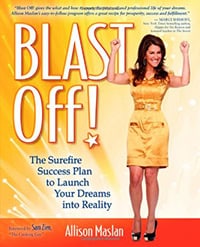
About three weeks ago, we got a text from him saying that he was so sorry for the way he had been acting all these years, and can we make amends so that we can be at peace here? That he takes full responsibility. Let me just tell you, this was like another universe for this person.
I got goosebumps while you’re telling me this.
We talk about miracles. My husband met with him this weekend. They just talked about it. I still don’t know why this came around, it doesn’t matter. But it was so wonderful for him to realize that. My husband even said, look, we take responsibility too. I’m not going to put it just on you. Again, another evidence that energy does matter.
It’s so simple. Ho’oponopono starts with I’m sorry, then please forgive me, thank you, and I love you. Each of those is incredible on its own, but when you combine them into the four steps, it can heal almost anything. I think it can heal anything, even a terrible loss, something you’re grieving.
Speaking of which, I learned about how ho’oponopono is actually very applicable to grieving and to loss from a book called Ho’oponopono: Your Path to True Forgiveness by Matt James. A beautiful book, highly recommend it for you and for our listener too.
I’ll check that out.
I know we’re at the end of our time. How does our listener get in touch with you, work with Pinnacle, learn from you, and attend your events, whether they’re in-person or virtual? How do they take the next step?
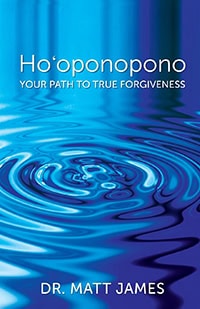
This has been so fun and I really enjoyed the interview. I definitely don’t get asked these types of questions, so it’s a lot of fun sharing those thoughts.
If people would like to learn more, first of all, my website is pinnacleglobalnetwork.com. You can find everything there about our mastermind and private mentoring.
You can also just email me directly at al*****@*******************rk.com if you have questions for myself or my team. On the website too, we’ll have all of our upcoming events and things like that that you can participate in too.
Awesome. Thank you so much, Allison. This was wonderful, inspiring, thought-provoking, and of course informational. Thank you so much.
Thank you. Thanks for having me.
All right. Thank you, listeners. Now, do something with this. Go out there, make it a great week, and make it a great week for somebody else. We’ll catch you in the next episode.

